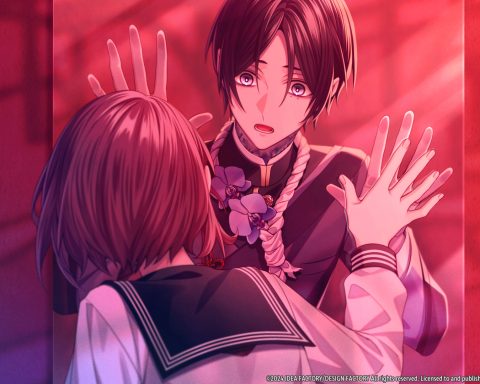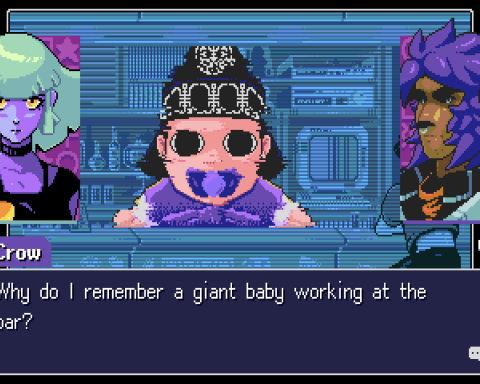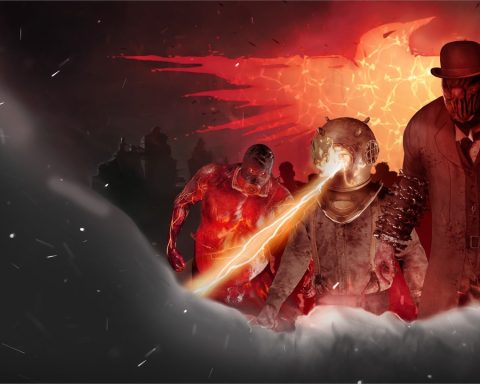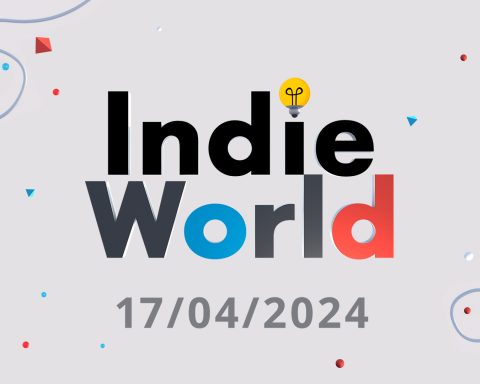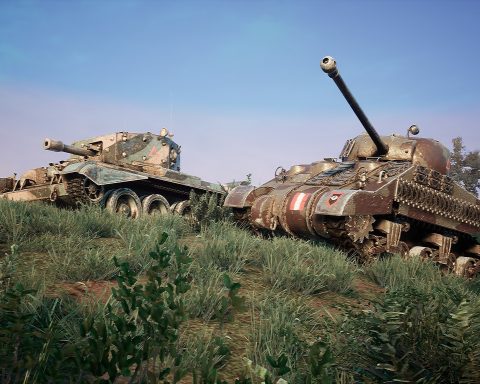 A couple of years ago, the then-fledgling iPad development environment had a breakout hit in Galaxy on Fire 2 (read our review of the PC version here). This game featured some incredible production values for the platform and gameplay that surprised many people who assumed that the iOS development environment was incapable of producing quality, serious games.
A couple of years ago, the then-fledgling iPad development environment had a breakout hit in Galaxy on Fire 2 (read our review of the PC version here). This game featured some incredible production values for the platform and gameplay that surprised many people who assumed that the iOS development environment was incapable of producing quality, serious games.
The developer behind Galaxy on Fire 2, Fishlabs Games, has hardly rested on that success. In fact, Fishlabs has its fingers in many pies; in addition to the game development, it has its own game engine, and it produces games for advertising games – gamification titles in other words.
As mobile and independent developers go, Fishlabs is one of the big ones and as this interview with CEO, Michael Schade, shows, it’s a very savvy business. At a time where making a direct profit from game development is proving challenging, here is an example of a clever business diversification that ensures multiple revenue streams, and therefore a far lower-risk business model.
Digitally Downloaded (DD): What are your priorities for the next 12-18 months?
Michael Schade (MS): Right now, our top priority is the completion of our first multiplayer strategy game Galaxy on Fire – Alliances. We’ve already showcased a fully playable (early) alpha version of it at GDC in San Francisco and everyone was pretty psyched about it. Thanks to its high-end 3D graphics and its strong focus on cooperative gameplay, we believe that GOF-A (as our community has already nicknamed the title) has the potential to cause quite a stir in the MMORTS segment on mobile.
In addition, we’re also working hard on the expansion of our brand games business, both by further improving the titles we’ve already made for existent clients and by developing entirely new products for novel customers. We’re already in negotiation with various high-profile brands and companies, but right now it’s too early to give out any names or reveal any more concrete pieces of information.
And last but not least, we’ve also already started production on another new game… as with the brand games, it’s still too early to let the cat out of the bag, but you can be sure that this one’s gonna be huge!
DD: Galaxy on Fire 2 was an incredible achievement on the iPad. What did you learn from the experience of producing premium-priced games for the iOS platform?
MS: Galaxy on Fire 2’s successful two year stint on the App Store has, of course, been quite a salutary experience for us. Ever since the title’s initial launch on iOS in October 2010, Galaxy on Fire 2 has undergone all kinds of transformations and alterations as results of ever-occurring trend shifts and market changes. Over the years, the game has not only gone from a premium product to a free app, but it has also leveraged a broad variety of different content strategies and monetization models. Among others, Galaxy on Fire 2 has received a complete graphical overhaul in High Definition as well as various portings to new platforms and devices. And then there are also the two extensive story add-ons, Valkyrie and Supernova. Both of these expansion packs have played a crucial role in the extension of the title’s lifespan and the assurance of its ongoing popularity.
If we’d have to deduct one key learning from all of this, it is probably the simple fact that you can never be too sure of anything in our business. Never rest on your laurels, never take anything for granted and never avert your gaze from the market’s most recent and (more important) upcoming developments and trends! Galaxy on Fire 2 would never have become such a success story if we hadn’t optimised, tweaked and re-adjusted it over and over again in order to make sure that it would always stay one step ahead of its competition.

MS: Our rather widespread portfolio still dates back to the feature phone era. Back then you had to have a broad variety of titles under your belt or else the carriers would not have noticed you as a serious player. And due to the fact that long-tailed distribution had still found its way into mobile gaming at that time, you also had to release new titles way more frequently than you have today. While you can easily keep a high-quality iOS game successful over a period of several months or even years, the average life span of a feature phone game was significantly shorter.
However, the situation has changed drastically over the years, mostly due to the fact that today’s smartphones and tablets are so much more powerful and capable that the feature phones of yore. Consequently, you can bring ever-more deep and complex gaming experiences to the mobile platform. Therefore, you no longer have to shell out one game after the other to hold your ground on the market, but rather can you focus on a comparatively small number of core titles and still be successful. Take Supercell, for example. With only two games they generated more revenue per month on the App Store in late 2012 than EA did with 969 titles…
But apart from that, we’re also generally very eager to expand our reach and add new genres and IPs to our portfolio. And that’s also one of the main reason why we’re developing Galaxy on Fire – Alliances at the moment. We’re very eager to show that we can indeed transfer the Galaxy on Fire IP to an entirely different genre and offer our fans a high-quality multiplayer gaming experience that leverages rather than exploits the F2P monetisation model. Of course, there are a lot of people who are very skeptic of F2P and who say that it’s not possible to create a fair and well-balanced game monetised solely by micro-transactions and in-app-purchases. But then again, there have also been a lot of people over the years, who would have told us that you’d never be able to enjoy a console-quality gaming experience on your phone…
DD: What would you say are your top priorities when it comes to the game development process?
MS: The one thing we always care about in any project we tackle is quality. Ever since the Java days, we’ve never settled for second best but always pushed the envelope further in order bring state-of-the-art console-quality gaming experiences to the mobile platform. And that’s a credo we’ve retained to this very day.
It doesn’t matter whether we’re talking about a game that has originally been sold at full price such as Galaxy on Fire 2 HD – Supernova, a brand game such as Sports Car Challenge or a Free-to-Play (F2P) game such as Galaxy on Fire – Alliances. When they’re downloading a Fishlabs game, our fans can always be sure that they’re going to get a top-quality product with a premium game experience!
 |
| Blades and Magic |
DD: You also have your own game engine, and you offer B2B game development. What inspired you to develop products beyond consumer entertainment?
MS: Leveraging our own engine has always been a key constituent of the Fishlabs business, because we believe that we can work more efficiently and self-sufficiently if we don’t have to rely on middleware. Therefore, we’re constantly improving and enhancing our proprietary ABYSS® engine to ensure that it is always perfectly tailored to our needs and desires. Of course, developing and maintaining your own engine is quite an ambitious and resource-consuming undertaking. But we’re convinced that it’s worth it, because it grants us an utmost amount of flexibility and independence. That’s something we’ve grown very fond of over the years and we really don’t want to miss anymore in the future.
As for our brand games business, well, I guess we’ve started it simply because we’re good at it. Thanks to successful Java and iOS games such as Motoraver, Burning Tires and Rally Master Pro, we’ve already proven several times that we’re capable of bringing adrenaline-pumping racing experiences to mobile. Consequently, we knew exactly what to do, when Volkswagen asked us to develop a racing game for them back in 2009. And since the game in question, namely Volkswagen Polo Challenge, went on to become a huge success on the (back then) newly founded App Store, not only has Volkswagen hired us to develop additional titles but also have other companies reached out to us as well in order to make sure that their own brand games would be developed by Fishlabs, too. Step by step, we’ve thus been able to win over new clients and expand our market share. And today, we’re considered a world-leading developer of brand games and the gamification business is as important for our company as the development of our own IPs.
DD: From reading your website, you are heavily invested in providing gamification services to other businesses in your B2B operation. What value to you see in gamification as a commercial product?
MS: For us, brand games are the most efficient marketing tool available these days. While traditional forms of advertising, such as TV spots or newspaper ads, are usually forced upon their audience against their will, brand games are downloaded and played voluntarily. And when all is said and done, this shift from push marketing to pull marketing will lead to a way more positive and long-lasting relationship between the consumer and the brand. Like everything else in our lives, marketing messages are also way more well received when they’re presented in a fun and entertaining way. And that’s exactly what brand games do.
But that’s not the only advantage of this particular means of advertising. Range is another strong plus of brand games. Since pretty much everybody within the most attractive target group for consumer brands owns a smartphone or tablet these days and carries it wherever they go, a mobile brand game can reach out to an almost infinite number of potential customers. And due to the digital nature of the brand game, the numbers and data it produces are also way more transparent and accurate than those of other kinds of media, which are mostly based on extrapolations and approximations.
In the case of our brand game Sports Car Challenge, for example, we can not only track the number of people that have downloaded and actually played the title, but we can also find out what devices they used to play it or how long their average gaming sessions have been. And we can even go further and check which car models, paint jobs and race tracks are most popular among the gamers. The possibilities are indeed endless and there’s hardly anything that a brand cannot learn about its customers with the help of a brand game!
 |
| Rally Master Pro |
DD: What are the similarities and differences between consumer and B2B game development?
MS: The biggest difference between the development of a brand game and the production of an own IP is the fact that there’s more parties involved in the B2B venture and hence more opinions have to be taken into consideration. And when push comes to shove, the opinion of the client is always the one that matters most. Of course, we hope that the clients trust our expertise when we advice them that option A would be better than option B. But if they are eager to stick with option B, then that’s the way to go for us as well. As you can imagine, such circumstances are not always easy for developers and game designers in pursuit of an artistic vision. But with a bit of lenience and a fine sense of diplomacy, you will balance the thin line between your own creative vision and the client’s expectations just fine.
DD: What are your long-term goals for Fishlabs Entertainment?
MS: Quite simple: We want to fortify our position as one of the best mobile gaming studios out there and create some of the most stunning, deep and long-lasting game experiences on smartphones and tablets – across a variety of genres and all platforms. In order to do so, our team has to grow at a steady yet organic pace and our portfolio of games has to be stocked up with additional top titles. On the one hand, we want to enlarge and expand our most popular IP, namely the Galaxy on Fire series, and on the other hand, we also want to establish at least one other big IP. And furthermore, we also want to be even more present on the brand games market and tackle all kinds of new projects with established and new clients alike.
DD: What inspires your team?
MS: Everyone at Fishlabs has a true passion for games and mobile. All 76 employees of our company come to our open-plan office in the centre of Hamburg day after day, because we live up to the vision of being at the very core of the most disrupting revolution in video game history. I think that’s what keeps everyone going and what has kept us afloat, even when times were rough and we had not been sure if we’d keep our company in business. But we’ve made it through and we went on to develop some of the best games the App Store and Google Play have to offer… and we’ve by far not reached our peak yet! And there lies the simple but rock-solid secret of our success. If you know that you’re part of something great, you hardly ever lose your motivation and inspiration. Of course, not everything’s perfect around here either and not everyone’s smiling 24 hours a day, but all in all we have a pretty good atmosphere in our office and our team members enjoy working for Fishlabs.
In addition to a good and healthy climate in the office with low hierarchies, flexible work time and up-to-date equipment, we also sponsor a lot of extra activities, such as bowling nights, laser tag matches, cinema visits or office parties. It’s another way for us to say “Thank you” to our team for their hard effort and fantastic work.
DD: Finally, what games are you playing at the moment?
MS: My current faves include Gears of War 3 and Halo 4 on the Xbox 360, Lord of the Rings Online on the PC and Clash of Clans, Bastion, The Room, The Walking Dead and Real Racing 3 on the iPad.


